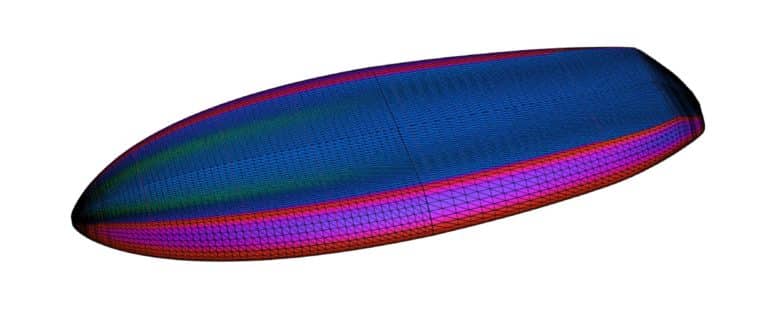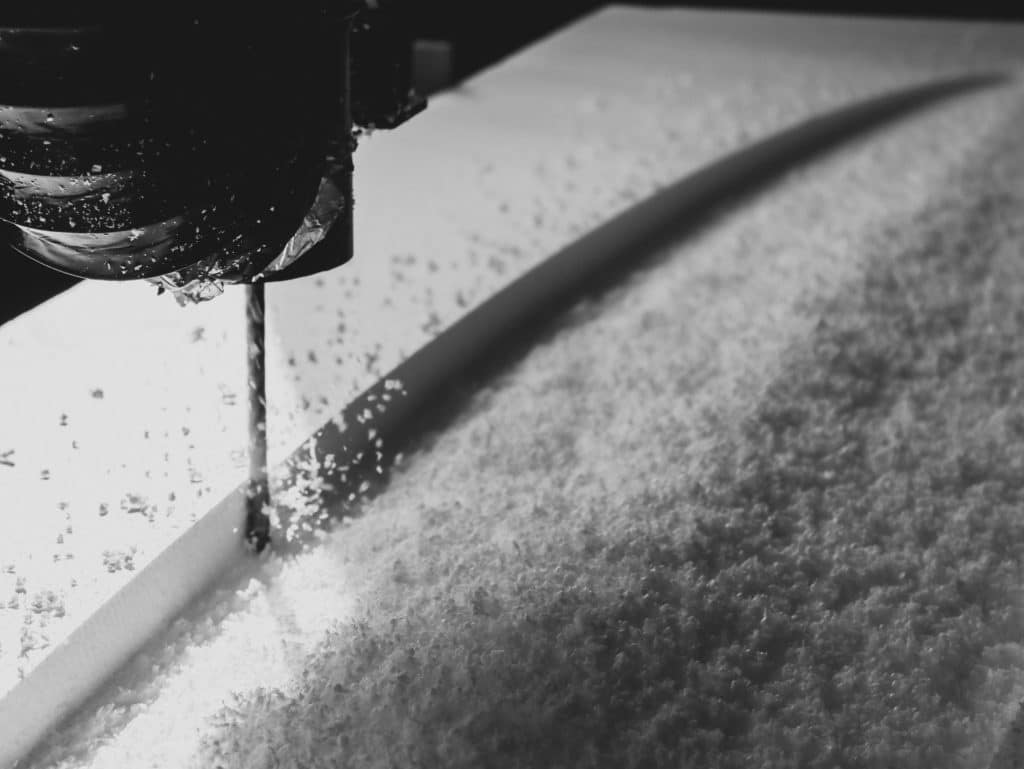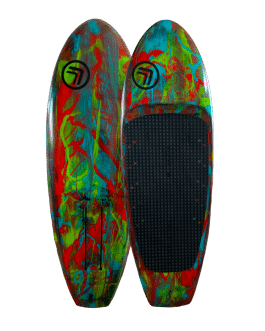How we build the best wing foil boards
When we started this project we wanted to make the best foiling wingboards. Light but stiff, easy to sail, with a shape that got up and foiled quickly. Here's how we did it...

First we optimised the profile
All our boards are designed on specialist computer aided design software. This defines the shape and allows us to understand the hydrodynamics including drag, centre of buoyancy and volume. We build in different volumes to suit ability – as your skills improve you will want a smaller board to reduce weight and windage.
Repeatable shaping with CNC
All our boards are shaped by our purpose built CNC machine.
We can prototype new shapes quickly and adjust the design for the optimum board – we go from a concept to a test board within a week which gives us a fantastic feedback cycle to ensure we develop quickly. Using CNC we get great machining accuracy and repeatability of profiles that you could not get from hand shaping.


Extra strong foil mount
The foil mount is the most highly stressed point on the board and as such required us to design and engineer a solution to handle these loads.
We manufactured multiple insert to transfers these high loads though the board and further strengthened this with carbon fibre.
At this stage we also fit other HD inserts.
We install lifting handles on the bottom to make getting to the water that bit easier. It is fitted on the bottom so that the wing can be kept away from the foil when carrying everything to the water.
There is also a self venting plug fitted to the deck. This prevents the building of pressure within the board, caused by changes in core temperature or altitude when flying.
Finally a leash plug is inserted at the back.
Light but tough lamination
All our latest wingboards are crafted with a full carbon fibre layup, using cloth woven for us, here in the UK. Carbon fibre allows us to achieve an exceptional combination of stiffness and ultra-lightweight performance, translating every rider input directly into responsiveness and control on the water. By minimising flex and overall weight, the board delivers instant feedback with a more connected feel in every turn.
The result is a performance-driven construction built for riders who demand unmatched control in all conditions.

Epoxy vacuum construction
All our boards are built using an epoxy vacuum construction with carbon reinforcement added to high stress areas.
Epoxies have superior strength compared to cheaper alternative polyester resins so it was an easy decision for us to make.
Vacuum bagging boards during lamination applies an even pressure over the surface which allows us to achieve a greater fibre density within the resin matrix, resulting in a stronger, lighter board.
Our final boards have been tested to destruction with various structural impacts and considerably out-perform mass production moulded polyester boards from big name manufacturers.
No paints used
We pigment the epoxy during construction rather than painting our boards. Unlike others, you can clearly see we are not using paint to cover up fillers! This also helps keep the weight down and gives a more durable finish that wont scratch off when you put the board down on the beach.
Each board is sanded by hand. This gives each board a unique and one of a kind finish.
Polished to a shine
Our final finish is a polished clear UV stabilised epoxy coat. We do not paint our boards so there will be no chipping and flaking.
Weighs in lighter
Our boards are extremely tough and yet still weigh in lighter than most boards on the market. An 80L will typically weigh between 4 and 5 Kg depending on the number of inserts and shape.

